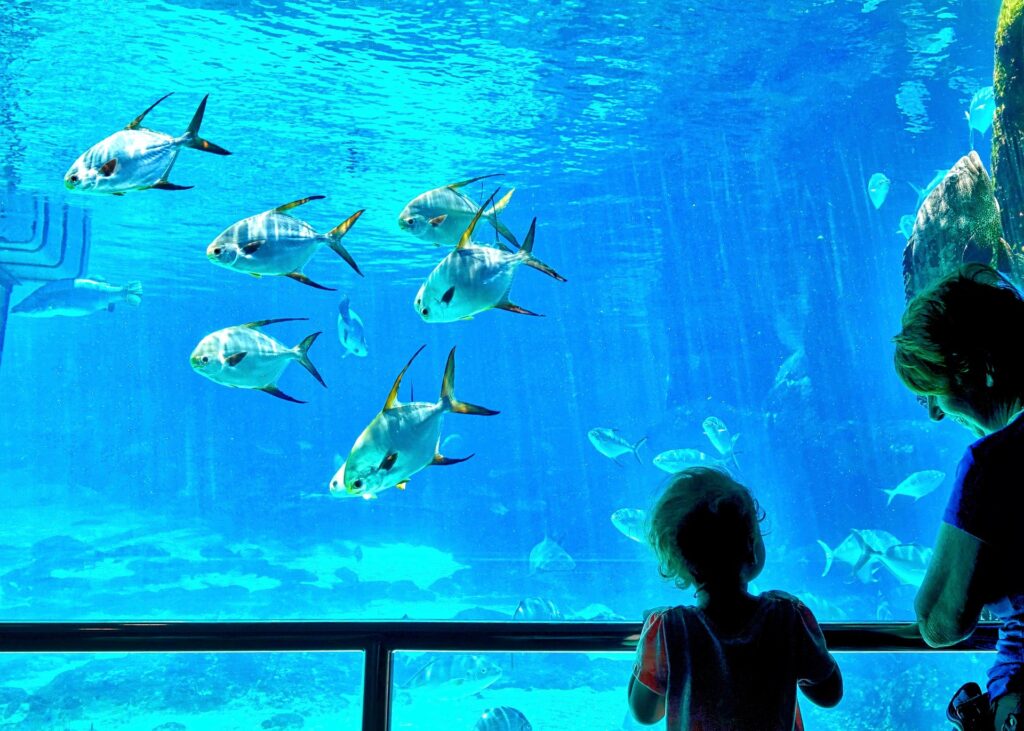What is Flexible Leadership Being flexible is the capability of readily changing (Merriam-Webster, n.d.)1. In…
No Fish No Future
*Image Source: Pixabay
Humans have always had hunter-gatherers as their occupation for centuries. Fish has become the last wild animal that people hunt in huge numbers. However, this generation might be the last to enjoy that privilege.
The Anthropocene (the Age of Man) would experience the extinction of entire species of marine life. Humans have consumed global fish of 17 kg (37 pounds) per person last 2011, even though the worldwide stocks have continued to decline. Humans now eat fish as much as four times this present generation than they did in 1950.
Approximately 85% of worldwide fish stocks, are depleted, overexploited, fully exploited or in recovery from exploitation. The year 2012 was witness to fewer than 1100 cod over the age of 13 years in the North between Scandinavia and the United Kingdom. This could cause worry as fish old enough is lost in order to create offspring that can replace populations.
Deserts are seen as a conversion from large Mediterranean and the North Sea seabeds. Bottom trawling has been an efficient method of expunging fish. These industrial ships are also using the said efficient methods in tropical oceans too. One-fourth of the catch by European countries are performed outside European waters. Most of the catch is done in former rich West African seas. It is worrisome to note that each trawler can scoop daily around hundreds of thousands of kilograms of fish. There is now an over-exploitation of all West African fisheries. The past 30 years have seen a decline of 50% in coastal fisheries. This is in accordance to a report by the UN Food and Agriculture Organisation.
It is predicted that in 2050, approximately 40% of fish caught in the tropics will decline by 40%. The sad nature is that around 400 million people in Southeast Asia and Africa depend on fish caught through artisanal fishing to give them minerals and protein. With the global issue of climate change, agricultural production will be greatly affected and this will cause more people to depend on fish for their nutritional needs.
There is unsustainability when it comes to subsidizing vast fishing ships to catch the declining global stocks of fish. Spain practices paying a subsidy for everyone in three fish. Governments are pushing people to lose their jobs in the long-term by paying people in the short-term. World fish is caught 50% by artisanal fishing.
Protect depletion
Industrialized nations are unable to go back to traditional methods. However, the industry needs to monitor on its disastrous management if people want to restore fisheries to a sustainable level. In Europe, approximately 3.5 million tons would be the result of greater catches that is worth billion annually.
Member of the EU community should stop hustling unsustainable quotas for fisheries. Instead, their fisheries experts should recommend that each individual government should set quotas based on the evel of stocks in their surrounding waters. Each individual who is into fisheries must be responsible over the amount of fish that they hunt. After all, each has a vested interested in improving their stocks. These policies will see the end of the situation of tragedy of the commons where all takes as much as they can from the oceans before their rivals obtain their last fish. This strategy has been successfully implemnented in Iceland, US, and New Zealand. Studies have shows that fish management done in this manner will twice be able to do away with failure in open-access fisheries.
Dangerous shark
Humans are not limited to destroying fish. They also hunt into extinction turtles to manta ray to marine mammals. Globally, sharks have declined by 80%. One third of shark species are in danger of being extinct. It is now humans that are the top marine predators and not sharks.
Marine ecosystems are significantly affected by a decline in shark numbers. A decline in the number of sharks increases the number s of fish that results to the decrease in the plankton population. The entire system is threatened without the presence of these smallest creatures.
Conservation request
Protecting and strengthening marine reserves would be great in conserving species. As of 2012, less than 1% of the oceans is protected. However, the international community promises to raise this to 10% by 2020. Marine life is protected when marine reserves are properly monitored and patrolled. An example is the tiny Pacific islands that have grouped together to protect a giant area of 1.1 millions square kilometres. Australia has also created the globe’s largest protected area and Britan and New Zealand are also cooperating.
Conclusion
The globe is threatened with a possible extinction of fish in the near future. All steps must be done hand in hand by all nations. After all, humans do not want to run out of fish.




